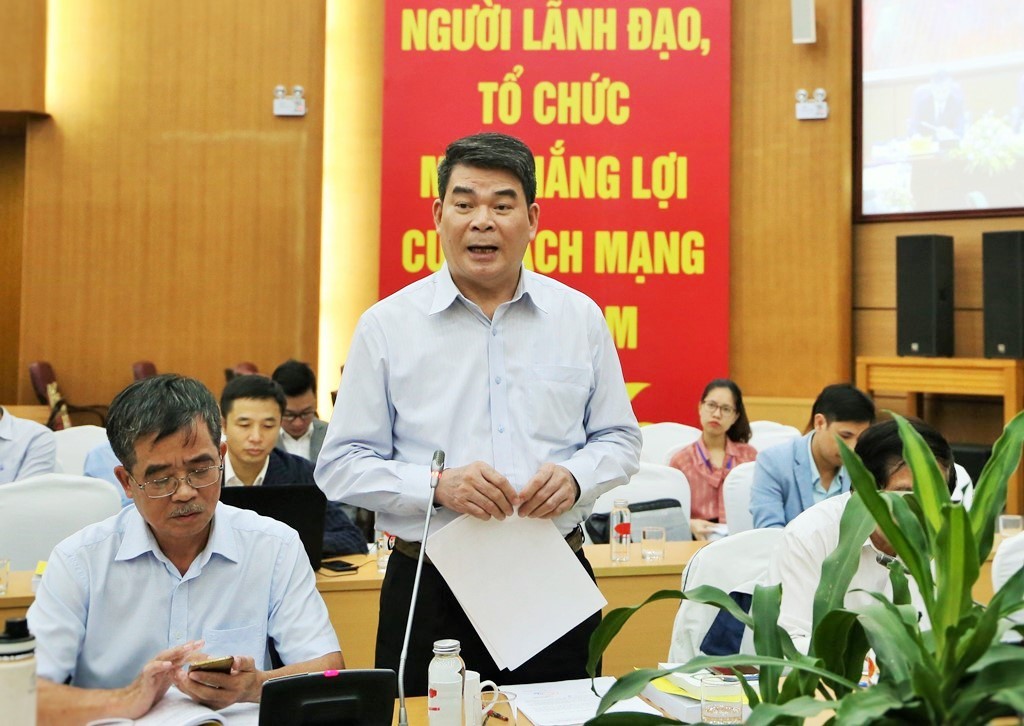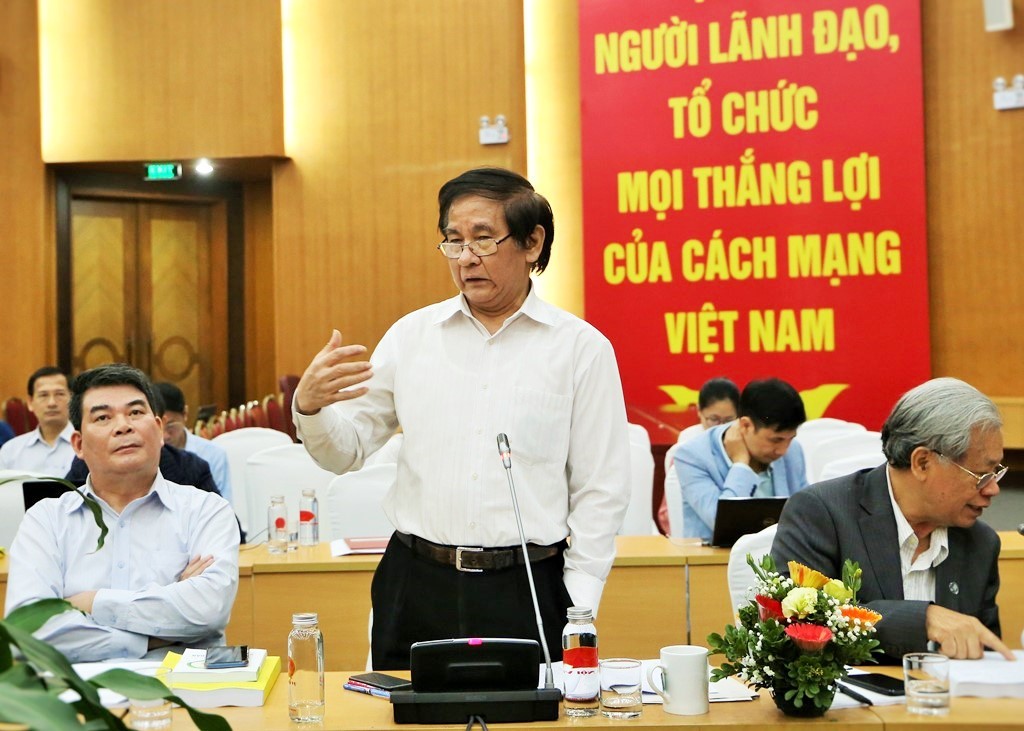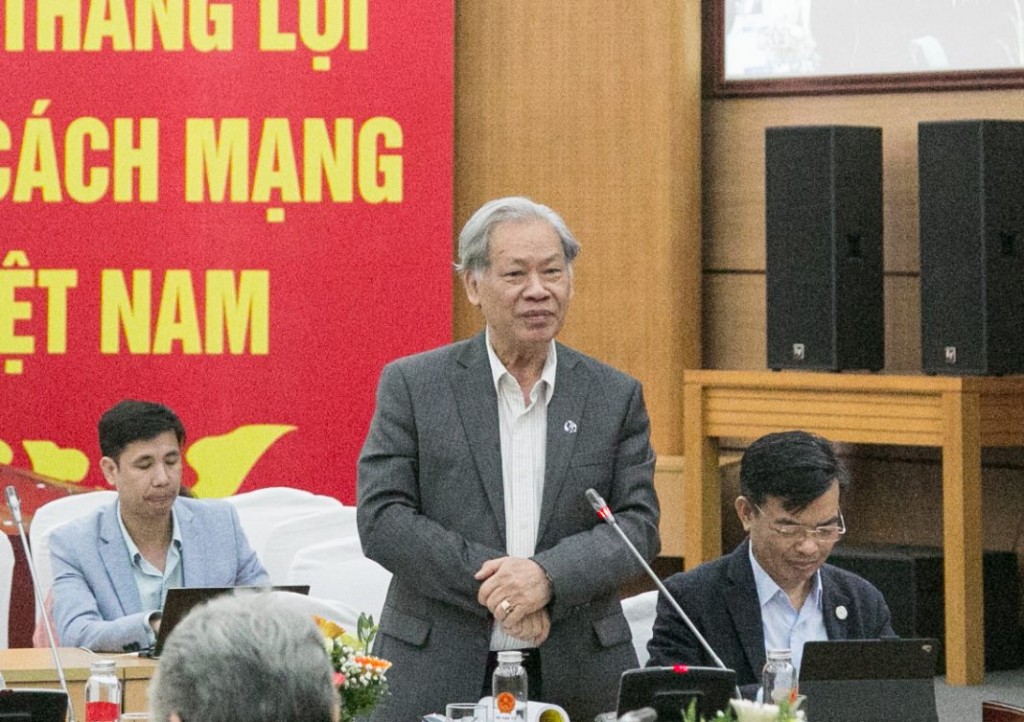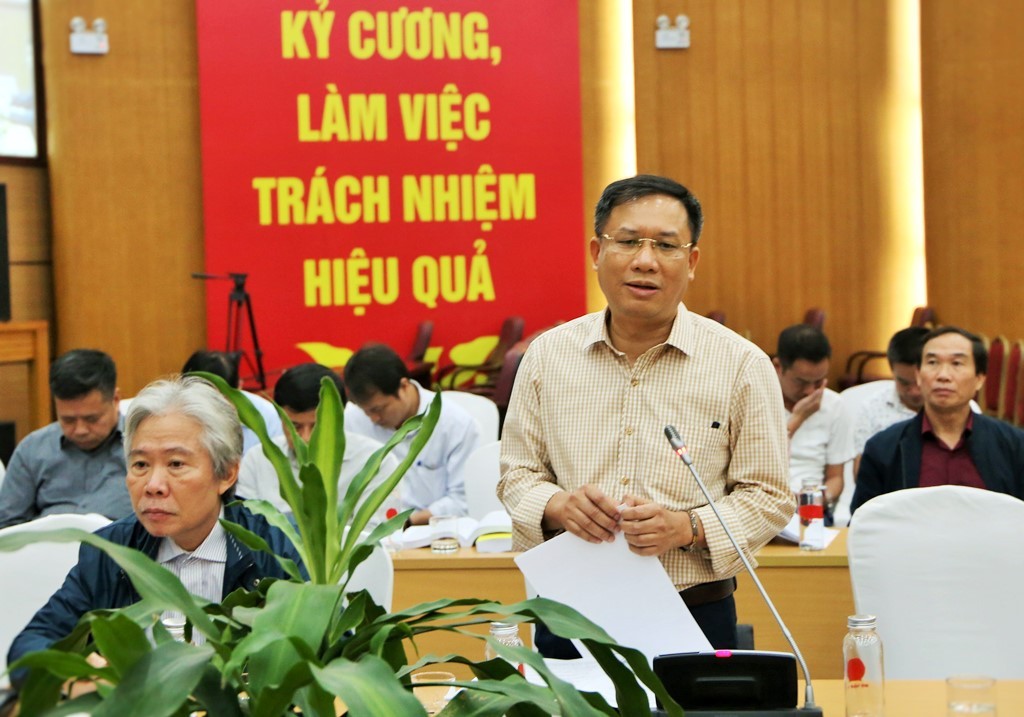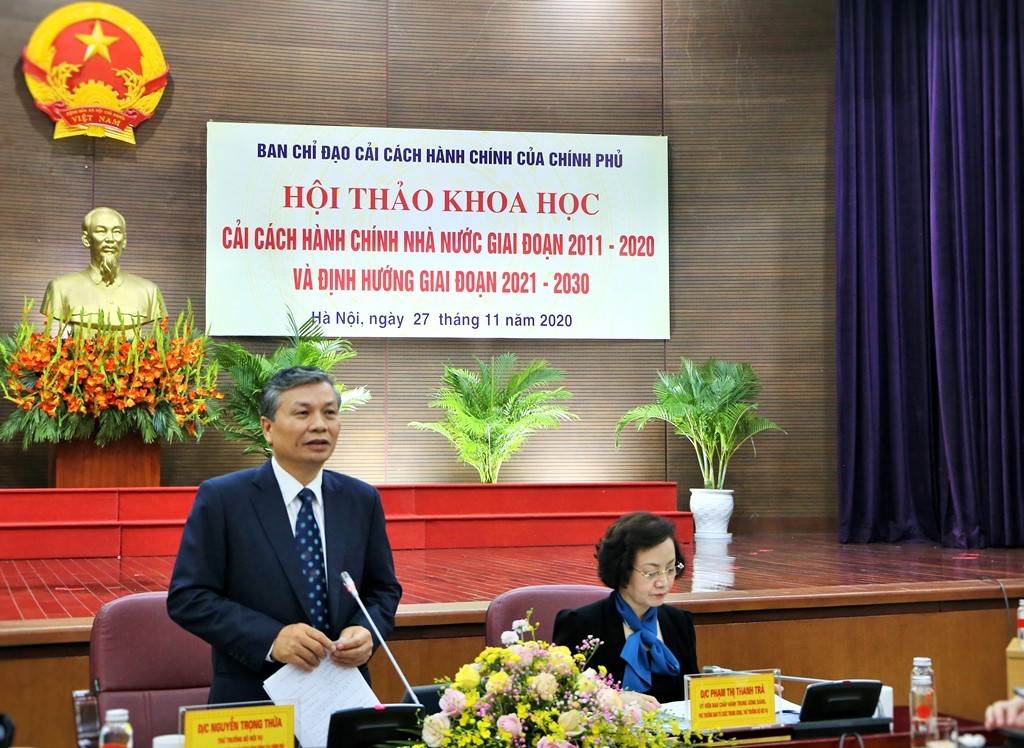Public administration reform )PAR) In, is a prerequisite for the success of socio-economic development, for the comprehensive national renovation in the context of globalization and international economic integration. On November 27, 2020 in Hanoi, the Government PAR Steering Committee held a scientific workshop “Public administration reform in the 2011-2020 period and reform orientation for the 2021-2030 period ” to review the public administration reform in the period of 2011-2020 and define the orientation for the period of 2021 – 2030.
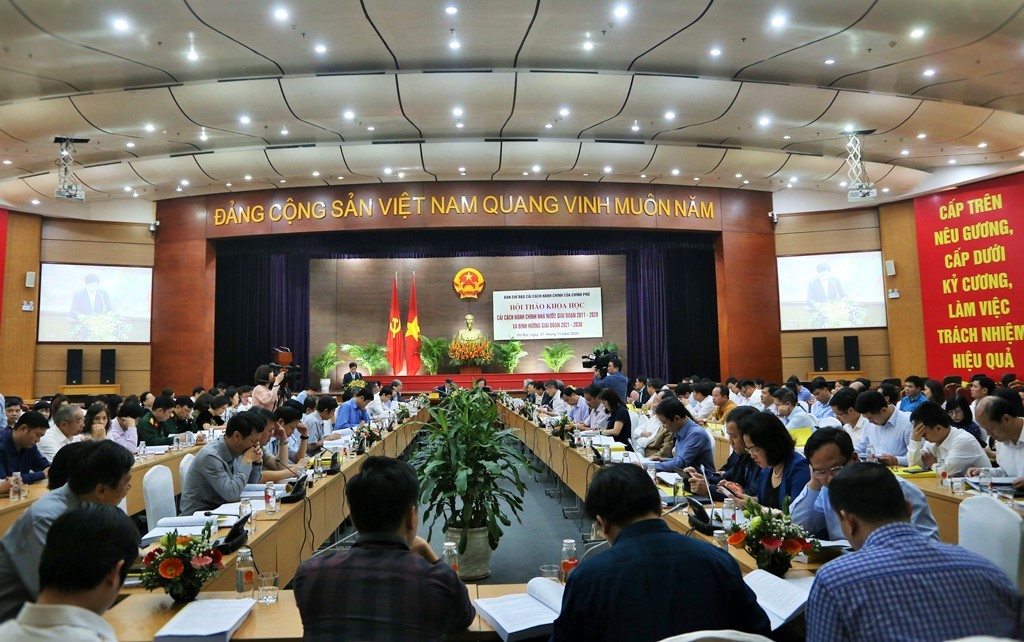
The workshop was co-chaired by Ms. Pham Thi Thanh Tra, Vice Minister of Home Affairs and Mr. Nguyen Trong Thua, Deputy Head of the Government PAR Steering Committee, Vice Minister of Home Affairs.
Attending the workshop were members of the Government PAR Steering Committee; representatives of ministries,the People’s Committees of provinces and centrally controlled cities in the North; representatives of ministerial departments, provincial departments of home affairs, local divisions of public administration reform in the Northern provinces; representatives of Ministry of Home Affairs; experts, managers, scholars.Dr. Dang Xuan Hoan, NAPA President was presented at the workshop.
Speaking at the workshop, Ms. Pham Thi Thanh Tra affirmed that the public administrative reform is a consistent policy of the Communist Party of Vietnam, a prerequisite for the success of socio-economic development of the country in the context of globalization and international integration. The Party has identified PAR is one of the three breakthroughs for national development in the period of 2011-2020. The 2011-2020 PAR Master Program launched by the Government is one of the overall and comprehensive solutions to effectively implement the Resolution of the EleventhNational Party Congress and the Socio-Economic Development Strategy for the period of 2011-2020.
Reform objectives and tasks have been completed with positive results. However, the PAR pace is still slow,. The Government PAR Steering Committee organized the workshop to supplement scientific and practical foundations to complete the final report on the PAR Master Program for the period of 2011-2020 and develop the PAR Master Program for the period of 2021-2030 to submit to the Government for approval.
Ms. Pham Thi Thanh Tra expected that the workshop participants focus on discussing the reform results achieved, the causes of limitations in the implementation process; analyzing and evaluating PAR areas such as institutional reform, administrative procedure reform, state administrative organizational structure reform; clarifying lessons learned during PAR implementation; and proposing main contents of the State PAR Master Program for the period 2021-2030 considering the domestic and international context.
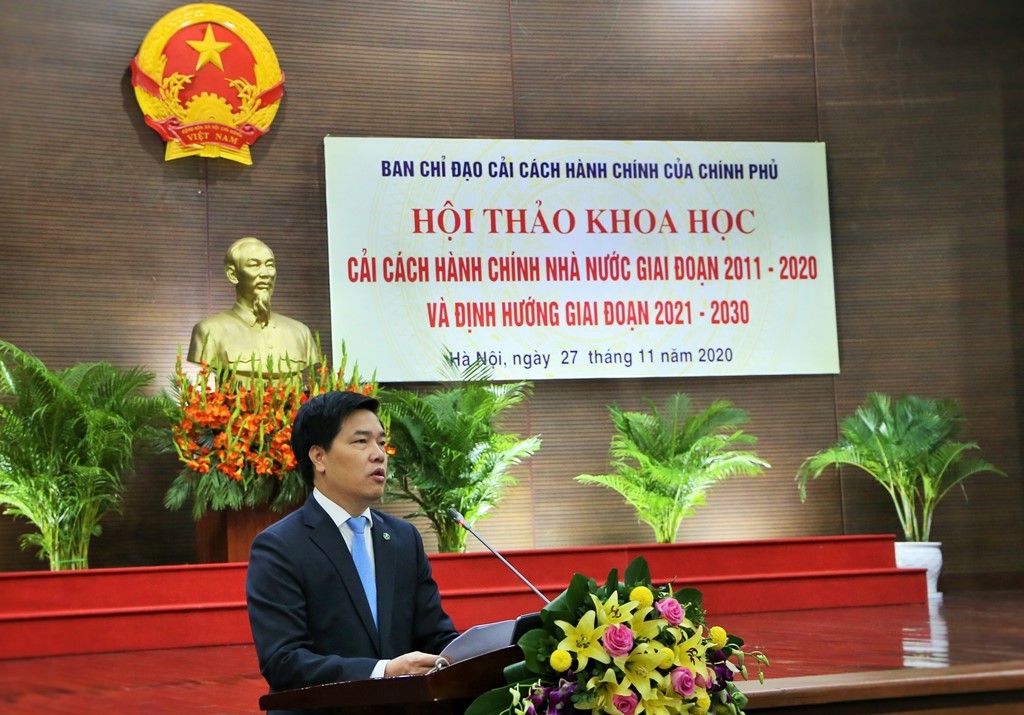
Mr. Pham Minh Hung, Chief of Office of the Government PAR Steering Committee speaking at the workshop
Mr. Pham Minh Hung, Chief of Office of the Government PAR Steering Committee made brief report on the Review of the State PAR Master Program for the period of 2011-2020 and reform orientation for the period of 2021-2030. As stated in the report, the leadership and direction of the Party have had a strong and deep impact on the awareness and action of state agencies in general and administrative agencies in particular in performing PAR tasks.
The Government and the Prime Minister have given effective direction on PAR for the period of 2011-2020; outstanding results have been made in PAR implementation, monitoring and evaluation, announcement of PAR index; surveying, measuring, and identifying individual’s and organizations’ satisfaction index for public administrative services (SIPAS index).
Institutions for administration, for the socialist-oriented market economy and for the relationship between the State and the people have been completed and effectively implemented. There has been a shift towards democracy, service, professionalism, modernity, dynamism, responsibility in the public administration to better meet the needs of the people, the society and to serve national development.
Administrative procedure reform, reduction of business licenses, specialized inspection reform, application of information technology in state agencies, building and developing E-Government, and the state administrative apparatus reform have been performed with remarkable results.
However, PAR is still slow, and there still remains shortcomings in the institution reform; the administrative procedure reform does not plays its role as a strong driving force for the improvement of the business environment; and the quality of civil servants remains poor.
In the period 2021-2030, the Government PAR Steering Committee has identified the following objectives: promoting PAR for a democratic, modern, professional, disciplined, open, transparent, and accountable administration; building a contingent of highly qualified civil servants; streamlining the state administrative agencies at all levels for an effective, efficient and serving public administration.
Speaking at the workshop, Dr. Nguyen Tien Dinh, former Vice Minister of Home Affairs highly appreciated the good preparation of the draft report on PAR implementation and its achievements, limitations and lessons learned as well as orientations for public administration reform in the period of 2021-2030. Mr. Nguyen Tien Dinh suggested that it is necessary to comprehensively evaluate the results of the PAR not by listing what have been done but analyzing and evaluating the result impacts. He emphasized that the limitations of the reform should be clearly identified which provided inputs for proposing the contents of the PAR in the next stage.
Assoc. Prof. Dr. Van Tat Thu, former Vice Minister of Home Affairs supposed there should be innovations in the next stage. The PAR results are the basis and the prerequisite for enhancing national competitiveness. Therefore, the administration reform should go along with the legislative and judicial reform as well as the renovation of the political system in Vietnam.
Dr. Thang Van Phuc, former Vice Minister of Home Affairs stated that the recent PAR is the driving force for socio-economic development, in line with the development roadmap of a developing country in the transition period. Regarding the solutions for PAR orientation for the period of 2021-2030, Mr. Thang Van Phuc supposed it is necessary to renovate the leadership of the Party and build a strong legal system. In addition, information transparency should be promoted. It is important to develop a national project or program on decentralization fronm the central to local government.
Sharing experience in modernization of the public administration, Mr. Le Hung Son, affirmed that Vietnam Social Security has shown its determination to implement administration reforma. It is crucial to apply information technology into task assignment, promote decentralization and authorization, to manage and monitor the performance. Mr. Le Hung Son emphasized that there should be reforms inside the organization and in the relationship between different levels of the social security. The Government should develop a plan for a database to ensure consistency and synchronism.
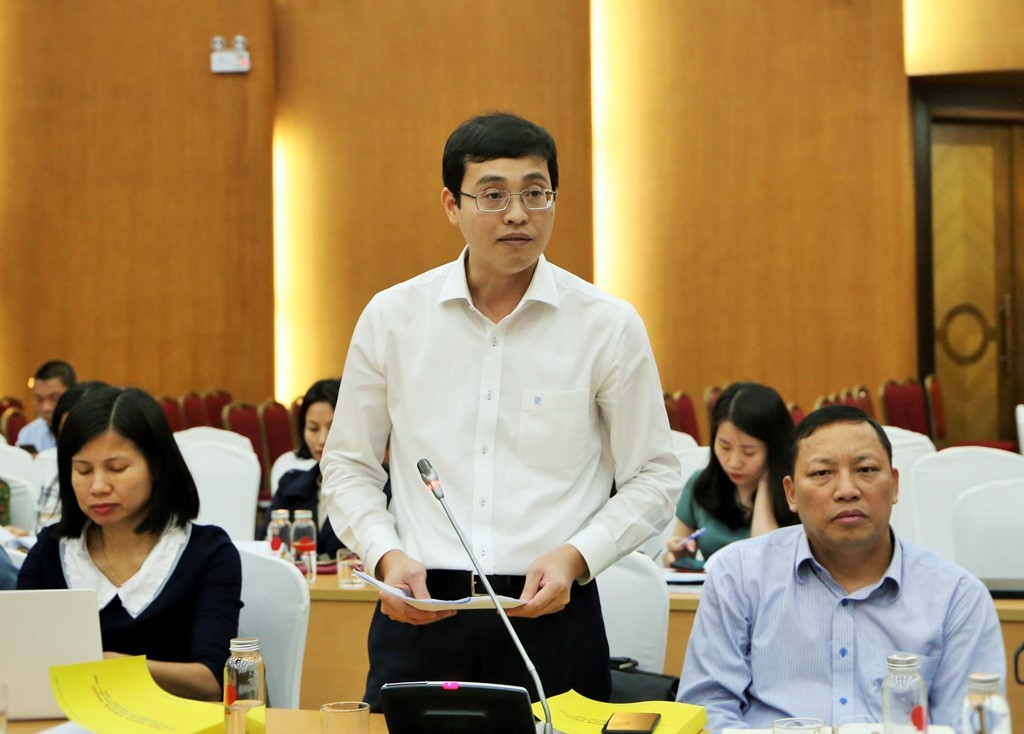
Mr. Do Duc Hien, Director of the Criminal and Administrative Legislation Department, Ministry of Justice speaking at the workshop.
Regarding the content of institutional reform, Mr. Do Duc Hien, Director of the Department of Criminal Law – Administration, Ministry of Justice, said that one of the requirements for the building of institutions in the period of 2011- 2020 stated in the Party’s resolution is to concretize the content and spirit of the 2013 Constitution, complete the legal system, take judicial reforms, continue to rearrange the organizational apparatus of the political system. Therefore, it is necessary to learn from the practice and to study the theory of law to meet the requirements of practice and state management tasks.
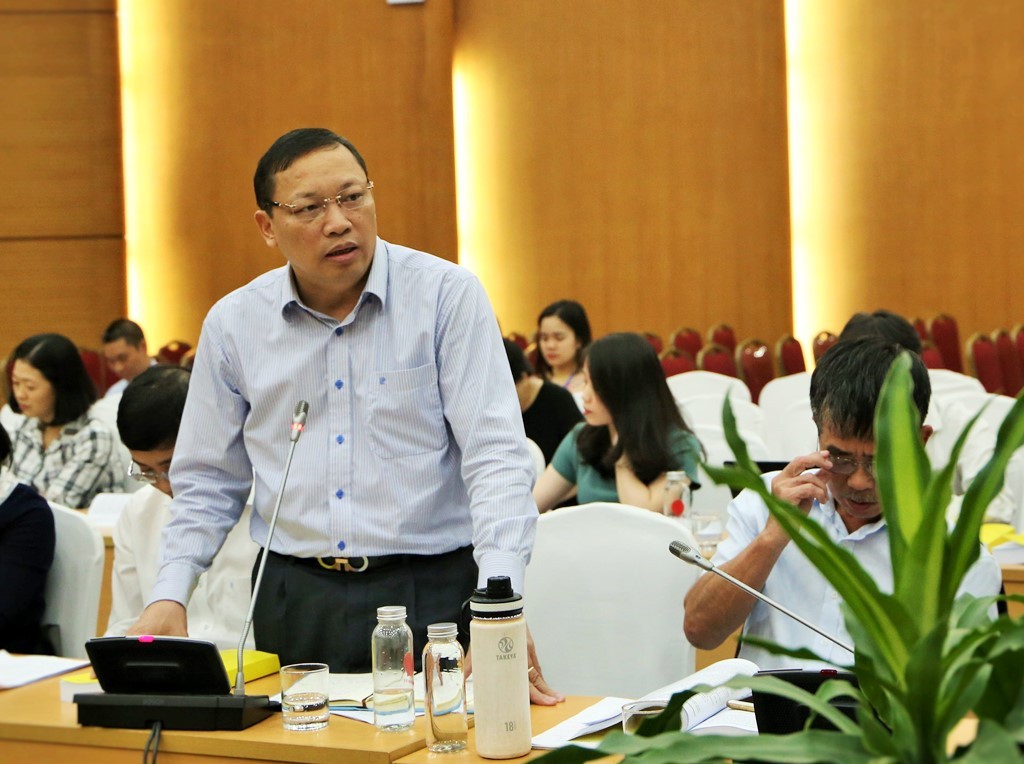
Dr. Ngo Hai Phan, Director of the Administration Procedure Control Agency, the Office of Government speaking at the workshop
Regarding the reform of administrative procedures, Mr. Ngo Hai Phan, Director of the Administration Procedure Control Agency, the Office of Government said that the 2011-2020 PAR has gained many achievements especially in terms of streamlined organizational structure, staff downsizing and a more synchronous legal system, creating favorable conditions for socio-economic development. These have contributed significantly to enhancing Vietnam’s position in the world ranking. However, there still remains overlapping, cumbersome, complexity, contradiction and even “arising procedures” in some administrative procedures and business licenses. Therefore, in the coming period, it is necessary to shift from the building to the improvement of institutions, focusing on promoting administrative procedure reform and e-Government development.
The experts and scholars at the workshop also exchanged, discussed issues in the process of implementing PAR in ministries, agencies and localities. The workshop participants highlighted lessons learned, current difficulties and problems and proposed many practical and specific PAR contents for the period of 2021-2030.
At conclusion session, Mr. Vu Trong Thua highly appreciated presentations, comments and discussions of the workshop participants. He requested the Office of the Government PAR Steering Committee to incorporate of the comments given by the workshop participants in the Report so as to advise the Government and the Prime Minister in making effective policies for PAR implementation in the 2021-2030 period.



